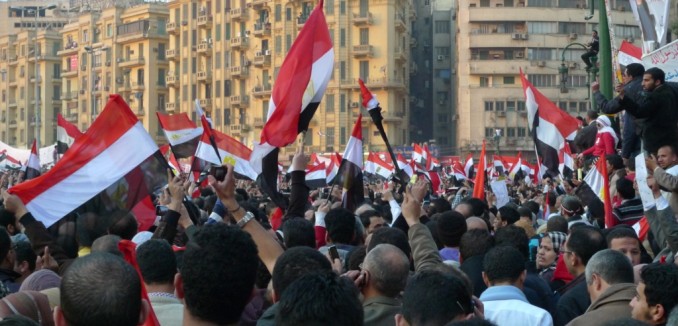Although deadly clashes between protesters and police marred the fourth anniversary of Egypt’s January 25 Revolution, which led to the ouster of longstanding president Hosni Mubarak leading to four years of turmoil, country has made significant progress in the domestic, economic and security spheres under the leadership of former armed forces chief Abd Al-Fattah El-Sisi.
Sisi has made a number of changes in Egypt’s economy, including passing Egypt’s first minimum wage law, as well as enforcing a maximum wage for all government employees, including the president.
Moreover, with investor confidence growing, Egypt is looking forward to a sizeable boost to its economic performance in 2015. As Egyptian Investment Minister Ashraf Salman told The Telegraph, “We’re back after four years of turmoil and looking ahead. We’re going to launch mega projects as a catalyst for domestic and international investment for the country.”
Since Sisi came to power in June last year, Egypt has received around $20 billion in finance and loans from oil-rich Saudi Arabia and the United Arab Emirates to help rebuild its economy. The World Bank projects that Egypt’s economy will grow significantly this year. Recently Egypt has also started to resolve its strained relations with Qatar.
The more positive economic outlook is closely connected with, among other things, the government’s push to pay back debts owed to international oil and gas companies, an issue that had constrained investment in a crucial revenue-generating industry.
The government has made efforts to reduce energy subsidies. These subsidies have hurt the economy by “driving up government deficit and debt, as well as draining foreign currency reserves.” The Egypt Daily News reports:
“The government took the first substantive step in July to rein in subsidy spending, with an across-the-board fuel price hike with energy subsidies slashed by about a third, sending a signal to investors that it is serious about structural reform.”
Moreover, as its flagship project, the government launched the expansion of the Suez Canal – one of the world’s critical shipping routes and a major income earner for Egypt. The $8 billion project is expected to quadruple the canal’s daily capacity and double the revenue Egypt earns from the canal.
In the security field, the government announced that the country is in a state of “war against terrorism.” The insurgencies led by Egypt’s terrorist organizations following the fall of Muslim Brotherhood President Mohamed Morsi prompted a strong response by the army and security forces to restore stability in the country.
Following a wave of terror attacks by al-Qaida-inspired groups such as Ansar Bayt al-Maqdis, “authorities [imposed] a curfew on some parts of the province, evacuate[d] houses at the borderline with the Gaza Strip to create a buffer zone and intensif[ied] anti-terror military operations in the northern part of the peninsula.” However, terrorism is still a serious problem in the Sinai and tourism at the peninsula’s resorts remains low.
The reforms and anti-terrorist policies of Sisi’s government suggest that Egypt is set for economic improvement in the near future.
[Photo: Joseph Hill / Flickr]




